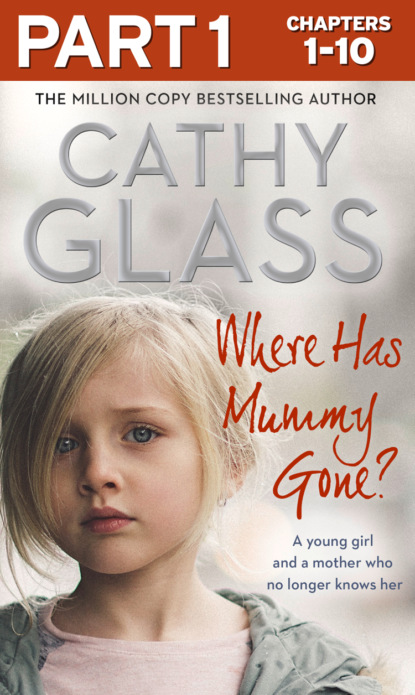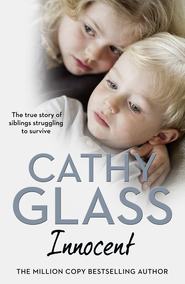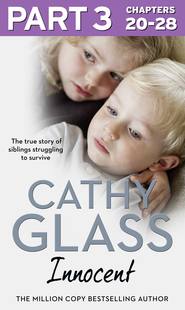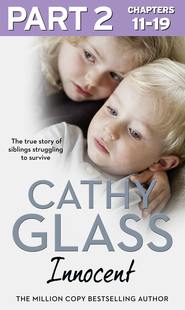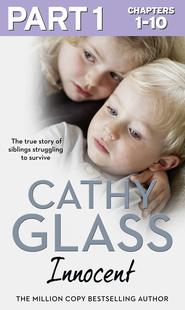По всем вопросам обращайтесь на: info@litportal.ru
(©) 2003-2024.
✖
Where Has Mummy Gone?: Part 1 of 3: A young girl and a mother who no longer knows her
Настройки чтения
Размер шрифта
Высота строк
Поля
‘There shouldn’t be, but you never can tell. It will depend on the judge. The case is in court shortly, so it’s likely to be early afternoon before they are with you.’
‘All right.’ Forcibly removing a child from their home wasn’t a good start, but if the parent wasn’t cooperating there was no alternative. The mother had been given plenty of opportunities to sort out her life and parent her daughter properly but had repeatedly failed.
‘Amanda, the mother, can’t control Melody,’ Jill said. ‘She’s failed to put in place any boundaries and Melody can easily become angry. One social worker described her as feral.’
One of the reasons I had been asked to foster Melody was because I had years of fostering experience, much of it working with children with challenging behaviour, and I knew why Melody was angry. Even though she had been living in appalling conditions and had not been looked after, she was being taken away from the mother she knew and loved.
‘She’s very loyal and protective of her mother,’ Jill continued, ‘and won’t hear any criticism of her. They both hate social workers. Melody does as she likes and is very much the one in control.’ Again, this wasn’t unusual for a child who’d had to raise herself.
‘And her father?’ I asked. Knowledge of the family helps the foster carer.
‘They don’t live together. It’s unclear if Melody sees him at all. He’s also an intravenous drug user. Both parents have served prison sentences for drug dealing.’ Which again I’d heard before. ‘Melody has four older half-siblings, different fathers. All those children were taken into care and then adopted years ago.’
‘Why leave it so long to bring Melody into care?’ I asked, almost sure of the answer.
‘Her mother, Amanda, is very good at evading the social services,’ Jill said. ‘She has been moving flats regularly and doesn’t answer the door when a social worker visits, or she gets someone else to say they don’t live there. The social worker only got access yesterday because the main door was open. It’s a multiple-occupancy house and their room is in the basement. The room was freezing, and Melody and her mother were watching television in bed with their coats on.’
‘Dear me,’ I sighed.
‘Amanda has been funding her drug habit from prostitution. If she’s brought the clients back to her room, there is a possibility Melody has witnessed her mother with them, and might even have been sexually abused herself. So be vigilant for any disclosures she may make. Oh yes, and she has nits,’ Jill added. This was common for children coming into care.
‘I assume Melody won’t be returning home?’
‘Highly unlikely. The social services intend to apply for a Full Care Order, so she will remain in care.’ Sad though this was, in cases like these there really was no alternative. It was too early to say if Melody would have the chance of being adopted, but aged eight and with behavioural problems it was unlikely.
‘So, Cathy,’ Jill said, rounding off, ‘that’s it really. Neave, the social worker, will phone once she’s left court, then she and a colleague will take a police officer to collect Melody from home and come to you. I’ll try to be with you when she is placed.’
‘Thank you.’ Jill, as my supervising social worker, offered support and made sure I had all the information I needed and the correct placement forms were signed when a child was placed.
‘See you later then,’ she said, and we said goodbye.
Yes, it was a depressingly familiar story, which I was sure I’d heard before about many children brought into care. As it turned out, I couldn’t have been more wrong. There was another side to Melody’s story, which at this point no one knew.
Chapter Two
Safe and Happy (#u2e8cf083-3ace-535d-99cc-a30e5fe161f4)
Even after many years of fostering I’m still slightly anxious before a new child arrives, wondering if they will like us and what I will be able to do to help them. Now I had the added concern of Melody’s angry and challenging behaviour. But by lunchtime I’d given her bedroom a final check, cleaned, hoovered and tidied all the communal areas in the house (I might not have another chance for a while), then I tried to concentrate on the part-time administration work I did mainly from home. As a single parent – my husband having run off with another woman some years before – the admin work plus the small allowance I received from fostering helped to make ends meet. I’d have fostered anyway, even without the allowance. I enjoyed it, and it had become a way of life.
My three children – Adrian, aged sixteen, Lucy, fourteen, and Paula, twelve – were at school, so they’d have a surprise when they arrived home to find Melody here, although it wouldn’t be a huge one. Adrian and Paula had grown up with fostering and knew children could arrive at very short notice. Lucy had been in foster care herself before I’d adopted her, so was only too familiar with the way the system worked. (I tell Lucy’s story in my book Will You Love Me?)
I had a sandwich lunch as I worked and it was nearly two o’clock before the front doorbell rang, signalling Melody’s arrival. I felt my pulse step up a beat as I left the paperwork on the table in the front room and went to answer the door. A female social worker I took to be Neave stood on one side of Melody and a male social worker was on the other, as if escorting her.
‘Hello, you must be Melody,’ I said with a smile. ‘Come in. I’m Cathy.’
Melody glared at me but didn’t move. ‘This is the foster carer I told you about,’ Neave said, and touched Melody’s arm to encourage her to move forward.
‘Get your hands off me!’ Melody snapped, angrily shrugging her off, but she did come in.
‘I’m Neave, and this is my colleague Jim,’ Neave said as they too came in.
Jim shook my hand. I guessed both social workers were in their early forties, and were dressed smartly in dark colours, having come straight from court.
‘Shall I take your coats?’ I offered, but Neave was already halfway down the hall, looking to see which room she should go in. ‘Straight ahead!’ I called. Jim took off his coat and also his shoes, which he paired with ours beneath the hall stand.
‘Would you like to take off your coat and shoes?’ I asked Melody, who was still standing beside us and hadn’t followed her social worker into the living room. She looked at me as though I was completely barmy, probably having never taken off her shoes and coat as part of the routine for entering her home. ‘We usually do,’ I added.
Melody was of average height and build, but her pale skin was grubby. There were dark rings under her eyes from lack of sleep and her brown, shoulder-length hair was unwashed and matted. I already knew she had nits and I would treat those later. Her zip-up anorak was filthy, a long rip down one sleeve showed the white lining and the zipper was undone and hanging off. Beneath her jacket she was wearing a badly stained jumper and short skirt. The skirt and ankle socks she wore were more suitable for summer than winter; her legs must have been freezing. Her filthy plastic trainers had holes in the ends where her toes poked through. Not for the first time since I’d started fostering, I felt greatly saddened that in our reasonably affluent society a child could still appear in this state.
‘Are you going to take off your coat and shoes?’ Jim now asked.
‘No!’ Melody said, and headed down the hall.
‘That told us,’ I said quietly to Jim. He smiled. Foster carers and social workers have to maintain a sense of humour in order to survive the suffering and sadness we see each day. I’d ease Melody into our way of doing things as we went along.
‘Would anyone like a drink?’ I asked as Jim and I entered the living room.
‘Coffee, please,’ Neave said from the sofa. ‘Milk, no sugar.’
‘And for me too, please, if it’s not too much trouble,’ Jim added.
‘And what about you?’ I asked Melody, who’d sat next to Neave.
‘No. I don’t want anything from you.’ She scowled.
‘OK, maybe later. There’s a box of games you might like to look at,’ I said, pointing to the toy box of age-appropriate games I’d put out ready. ‘There’s some children’s books on the shelves,’ I added.
‘Not looking,’ she said. Folding her arms defiantly across her chest, she glared at Neave. ‘I want to go home. Take me back, now!’
‘You know I can’t do that,’ Neave said. ‘I explained in the car what was happening.’
‘I don’t care what you said. It’s not your decision. It’s up to me and I want to go home!’
‘That’s not possible,’ Neave said evenly. ‘You’re staying with Cathy and her family for now, and she is going to look after you very well. You’ll do lots of nice things and you’ll see your mother soon.’
‘I want to see Mum now!’ Melody’s anger flared and for a moment I thought she was going to hit Neave. Neave thought so too, for she moved further up the sofa. ‘My mum needs me!’ Melody said with slightly less aggression. Many children come into care believing that their parents won’t be able to manage without them, and part of my role is to take away the inappropriate responsibility they’ve had at home and encourage them to be children.
I made my way towards the kitchen to make the coffee but as I left the living room the front doorbell rang. ‘That’ll be Jill,’ I said, and went to answer it.
‘Sorry I’m late,’ she said. ‘I’ve come straight from placing another child. Are they here?’
‘Yes, just arrived. They’re in the living room. I’m about to make coffee. Would you like one?’
‘Oh yes, please,’ she said gratefully. ‘Have you got a biscuit too? I haven’t had time for lunch.’
‘I could make you a sandwich?’ I offered.
‘No, a biscuit is fine.’
Другие электронные книги автора Cathy Glass
Innocent




 0
0





